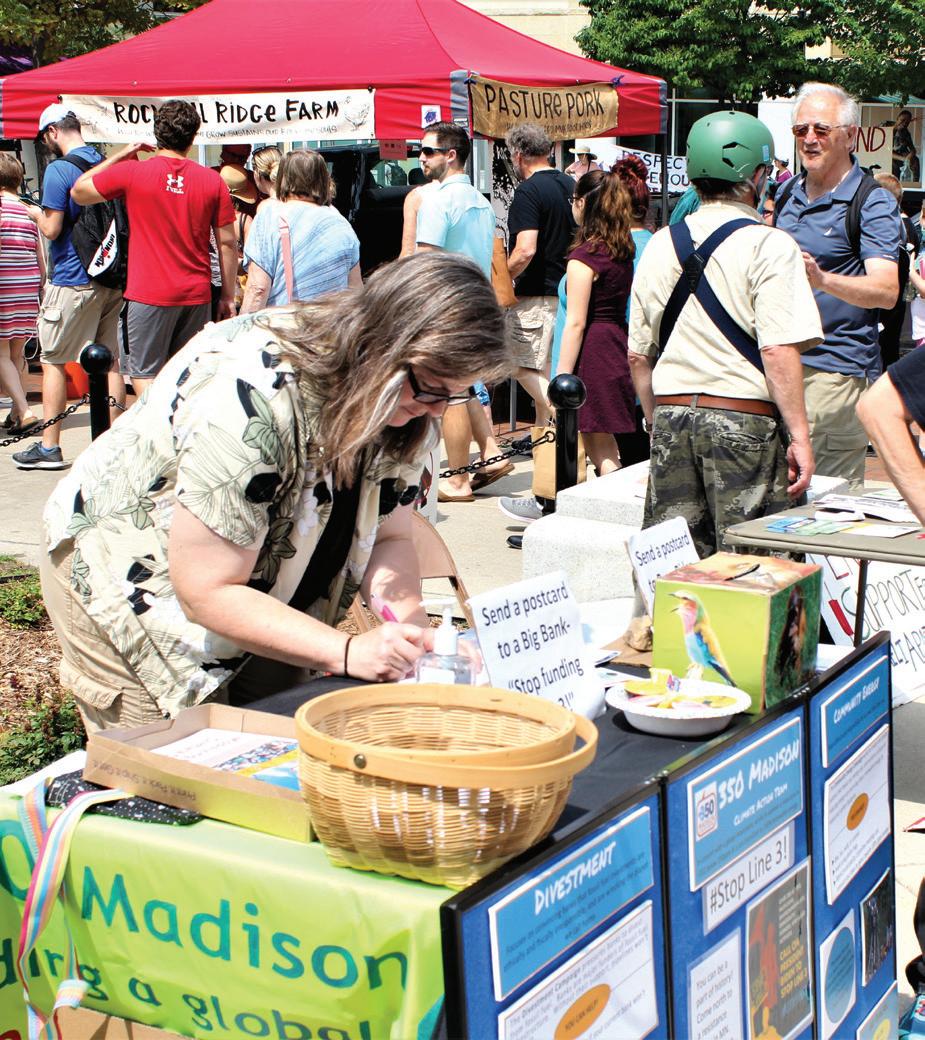
2 minute read
COMMUNITY CLIMATE SOLUTIONS
“THINK GLOBALLY, ACT LOCALLY”
In order to achieve the wide-scale change that we need for a sustainable future, action has to come at every level – from the individual to the global. 350 Wisconsin’s Community Climate Solutions Team (CCST) engages with individuals, businesses and community leaders at the municipal and county levels, encouraging them to bring about local change in service of the larger, global goal of a livable planet for all.
Advertisement
Centering Equity and Climate Justice
CCST promotes climate solutions tailored to the needs of individual communities. We work on issues such as building electrification, renewable energy, public transportation, sustainable agriculture, electric vehicle (EV) charging stations, and more. We advocate for solutions that center equity and build resilience in the neighborhoods and communities hardest hit by climate impacts such as extreme heat and flooding. The team recently published “Low-income Energy Burden in Madison, Wisconsin: A Climate Justice Challenge,” to highlight strategies for alleviating the disproportionate share of their income that low income households spend on energy.
Recognized for Effective Community Engagement
As a result of CCST’s dedication and hard work, 350 Wisconsin was named a Dane County Climate Champion in 2021! Our advocacy has been key in gaining approval for vital projects and programs like the Koshkonong Solar Energy Center, and the City of Madison’s stormwater and EV charging ordinances.
Active Members of Local Leadership
Many of CCST’s members are recognized as leaders in climate advocacy, playing a role in various stakeholder groups and organizations, such as the Madison and Middleton Sustainability Committees. One of our team leaders received a 2021 Clean Energy Trailblazer Award from RENEW Wisconsin for converting their home to run entirely on electricity, including solar power, rather than using fossil gas.
GOALS & STRATEGIES
350 Wisconsin’s Community Climate Solutions Team helps local governments and institutions to set and achieve just, equitable climate goals on the urgent timeline that is needed to prevent the worst effects of the climate crisis.
CCST members regularly meet with elected officials, give presentations at public meetings, participate in key committees and task forces, and publish research reports on local climate issues.
The team engages with the public via community events, conferences and forums, social media, podcasts, and op-eds/blog posts. Additionally, CCST leaders actively work with local journalists and radio shows to keep climate in the public conversation.
Activating individuals to move from concern to action is a key strategy behind CCST’s success. The team encourages participation at various levels, including: calling for public comments and letters to public officials; facilitating letters-to-the-editor; sponsoring field trips and citizen science projects; and, offering internships to help students develop professional skills in climate advocacy.

Community Working Groups
CCST keeps the focus of its work local. Established Community Working Groups (CWGs) include: Dane County, Fitchburg, Madison, Middleton, Monona, Oregon, and UW-Madison. Members of the working groups from different communities learn from and support each other.
The team is working to grow its network across Wisconsin, using their unique model of volunteer-led local groups that have a big impact on their communities – adding up to a healthier, more sustainable climate for everyone.
“I love working with 350 Wisconsin because I’m able to act, rather than fret and grieve about the climate crisis. The Community Climate Solutions Team enables me to think globally, but act locally. Our teams focus on what’s going on in our communities. The collaboration is exciting and meaningful, and I wouldn’t trade it for anything.”






